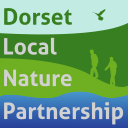SeaHives: Innovative structures that help create and restore marine ecosystems
Lee Hardy OBE JP, LNP Board Member, Dorset Catchment Partnerships, Dorset Coast Forum & Poole Harbour Commissioners SeaHives are shelters designed to provide refuge for marine animals, somewhere to live, grow, breed and thrive, thereby increasing the total diversity and density of marine life in a local area. The concept was born from the experience …

